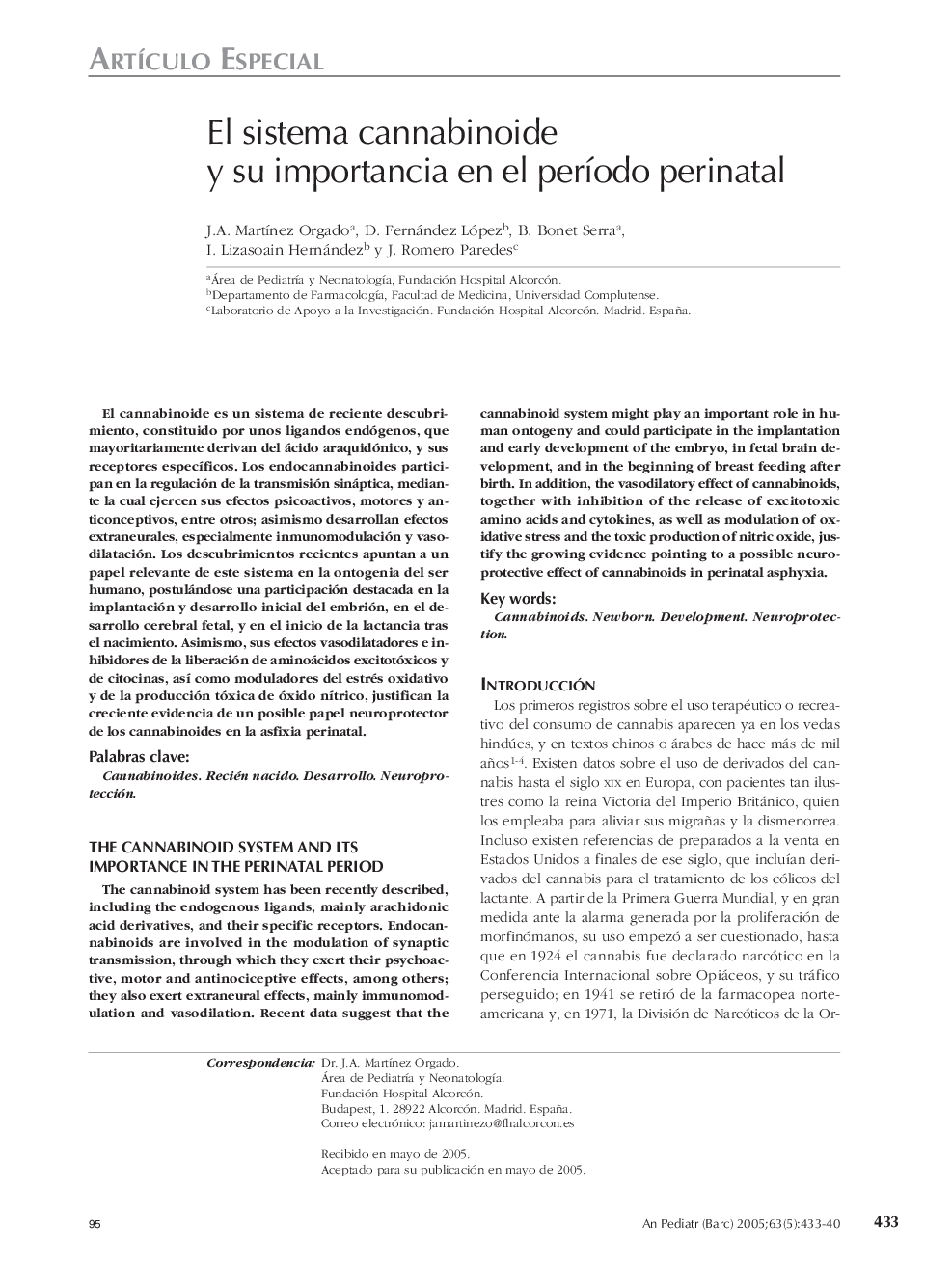| Article ID | Journal | Published Year | Pages | File Type |
|---|---|---|---|---|
| 9368247 | Anales de Pediatría | 2005 | 8 Pages |
Abstract
The cannabinoid system has been recently described, including the endogenous ligands, mainly arachidonic acid derivatives, and their specific receptors. Endocannabinoids are involved in the modulation of synaptic transmission, through which they exert their psychoactive, motor and antinociceptive effects, among others; they also exert extraneural effects, mainly immunomodulation and vasodilation. Recent data suggest that the cannabinoid system might play an important role in human ontogeny and could participate in the implantation and early development of the embryo, in fetal brain development, and in the beginning of breast feeding after birth. In addition, the vasodilatory effect of cannabinoids, together with inhibition of the release of excitotoxic amino acids and cytokines, as well as modulation of oxidative stress and the toxic production of nitric oxide, justify the growing evidence pointing to a possible neuroprotective effect of cannabinoids in perinatal asphyxia.
Keywords
Related Topics
Health Sciences
Medicine and Dentistry
Perinatology, Pediatrics and Child Health
Authors
J.A. MartÃnez Orgado, D. Fernández López, B. Bonet Serra, I. Lizasoain Hernández, J. Romero Paredes,
